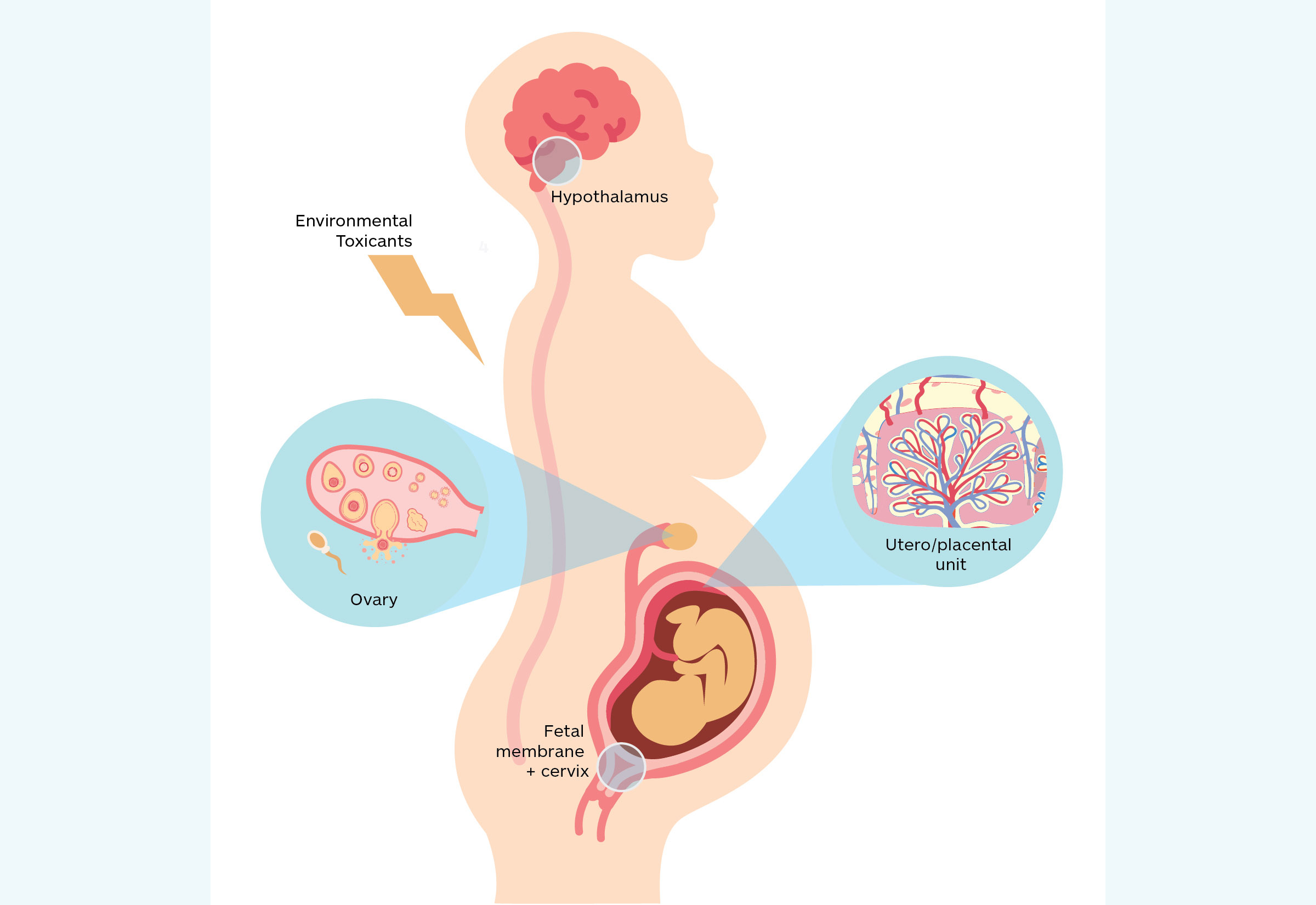Supporting research on reproductive health through the Director’s Innovation Fund
The Director’s Innovation Fund was initiated in 2019 by Scott Fisher, an Illinois alumnus. He wanted to honor his late wife Bonita J. Fisher, who was diagnosed with multiple sclerosis—a neurological disease that affects millions of people, but has no known cures. The fund was initially used for projects in the Gene Networks in Neural & Developmental Plasticity (GNDP) and Regenerative Biology & Tissue Engineering (RBTE) themes to study neurodegenerative disease models with an emphasis on Alzheimer’s disease.

Currently, the fund is being used by the Environmental Impact on Reproductive Health (EIRH) theme, which focuses on improving reproductive health through fundamental studies on fertility disorders and developing therapeutic tools through multi-disciplinary research collaborations.
The theme also focuses on how exposure to environmental chemicals, especially during pregnancy, can have long-lasting impacts on the health of the mother and child. Unfortunately, these chemicals are widely used in plastics and personal care products and can increase reproductive disorders in both men and women.
One of the current projects focuses on how extracellular vesicles, which are small sacs that carry proteins, lipids, and nucleic acids, act as mediators of intercellular communication in male and female reproductive tissues. Using a Spectradyne machine, which can measure the size and concentration of various extracellular vesicles, the researchers are trying to understand how environmental toxicants can impact their secretion.
“It’s a new field and for the past five years it is becoming apparent that when we treat cells with environmental chemicals, the release of vesicles and their cargo get altered and can modulate cellular function,” said Indrani Bagchi, a professor of comparative biosciences and co-theme leader of EIRH. “Similar work has been done in the context of cell-to-cell communication in cancer and we would like to apply the same methods to study the effect of environmental chemicals on reproductive tissues.”
Another project will use a Computer Automated Sperm Analyzer to detect small changes in sperm in response to environmental chemicals. “The quality and quantity of sperm is a sensitive predictor of infertility in males,” said Jodi Flaws (MME/EIRH), a professor of comparative biosciences and co-theme leader of EIRH. “The machine can detect sperm abnormalities and will work on multiple species, enabling us to examine humans, rodents, and pigs.”
Using these techniques, among many others, the theme will continue to explore the molecular pathways that are affected by environmental chemicals. The theme hopes to leverage the resources that are unique to Illinois, including genomics, epigenomics, and bioengineering tools, to address the unanswered questions in the field of reproductive health.
Other contributors to the fund include Kim and Robert Benziger, who share IGB’s mission of giving back to the community through scientific achievement, and Dr. Denise Elser, who was impressed by the collaborative themes at the IGB, particularly EIRH.
